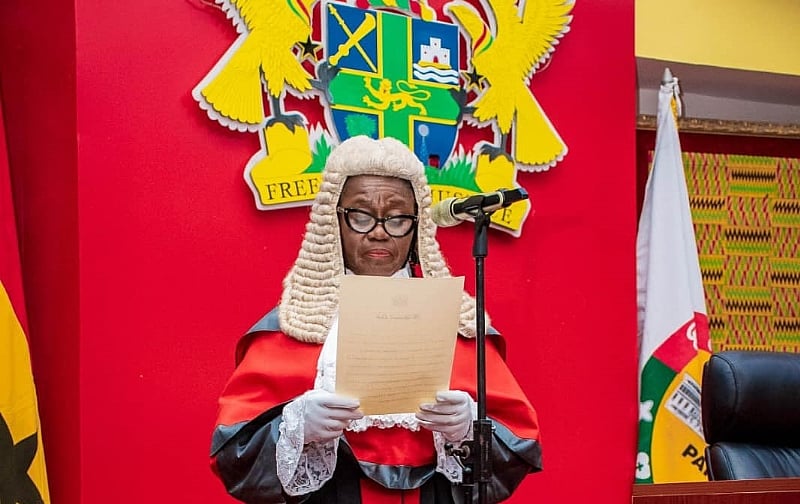The recent petitions seeking the removal of Chief Justice Gertrude Torkornoo have ignited a heated public debate, with accusations of political motivations swirling around the proceedings. Economic policy analyst Mr. Senyo Hosi, however, has forcefully dismissed these claims, arguing that the focus should remain on the integrity of the constitutional process and the rule of law. He contends that attributing the petitions to political maneuvering undermines the credibility of the Council of State, a body of 31 distinguished members who are entrusted with reviewing such matters. Mr. Hosi emphasizes that questioning their impartiality based on perceived political influence is an affront to their intelligence and a disservice to the established legal procedures. He insists the core issue at hand is not political, but rather a matter of adhering to due process and upholding the principles of justice.
The controversy surrounding the Chief Justice’s position has intensified with the leakage of both the petitions and portions of her response onto social media platforms. This dissemination of sensitive information into the public domain has fueled speculation and partisan interpretations. Mr. Hosi acknowledges that the Chief Justice may not enjoy universal support, but he cautions against prematurely judging the legitimacy of the petitions based on political considerations. He stresses the importance of evaluating the petitions based on their legal merit, emphasizing that political motivations become irrelevant if the grounds for removal lack substance. He reiterates that the critical factor is adherence to due process, highlighting that the existing mechanisms are designed to ensure fairness and impartiality.
Mr. Hosi expresses concern over the potential consequences of the public circulation of the petition and the subsequent commentary. He warns that this premature exposure could compromise the integrity of the proceedings and potentially prejudice the outcome. He urges all parties involved, as well as the public, to exercise restraint and allow the established legal process to unfold without undue interference. He underscores the importance of respecting the confidentiality of the proceedings to safeguard the fairness and objectivity of the eventual decision. He emphasizes that allowing the process to proceed without external pressures is crucial to maintaining public trust in the legal system.
Despite the controversy and the potential for undue influence, Mr. Hosi maintains confidence in the robustness of Ghana’s legal institutions. He points to the involvement of independent bodies like Parliament and the Judiciary as safeguards against potential bias or manipulation. He argues that the system is designed with checks and balances that prevent any single entity, including political actors, from hijacking the process. He asserts that allegations of undue influence demonstrate either a misunderstanding of the system’s structure or a deliberate attempt to erode public confidence in institutions vital to upholding democratic principles. He reiterates that the system’s design inherently protects against partisan agendas and ensures a fair and impartial evaluation of the merits of the petitions.
Mr. Hosi’s argument rests on the fundamental principle of respecting the established legal framework and trusting in the integrity of the institutions designed to uphold it. He criticizes those who cast doubt on these institutions, characterizing their actions as either misinformed or deliberately aimed at undermining public trust in the democratic process. He reiterates the importance of allowing the legal process to run its course unimpeded by external pressures or political agendas. He emphasizes that the strength and independence of these institutions are essential to ensuring a fair and just outcome in matters of such significance.
In conclusion, Mr. Hosi appeals to the public to have faith in Ghana’s legal institutions and allow them to handle the matter impartially and according to established procedures. He cautions against unfounded accusations and emphasizes the importance of refraining from prejudging the outcome based on political narratives. He believes that Ghana’s institutions are resilient enough to withstand political pressures and that the truth will ultimately prevail through a fair and impartial process. He urges everyone to prioritize the integrity of the legal system and allow it to function without interference, ensuring that justice is served and public trust in the rule of law is preserved.


